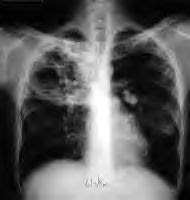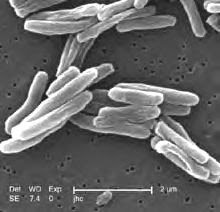At the request of Committee on Homeland Security Chairman Bennie G. Thompson (D-MS), the Majority Staff of the Committee on Homeland Security published a comprehensive report which analyzes the federal government's trouble with handling an XDR-TB case and the government's ability to manage incidents like it.
The report concludes that many of the problems associated with the conducting of the case have still not been resolved.
Specifically, the report looks into the interactions between the Department of Homeland Security and the Centers for Disease Control and Prevention (CDC) regarding public health security issues, while identifying weaknesses in homeland security processes designed to prevent "persons of interest" from entering the United States and making recommendations for improvements to the federal handling of national security on the nation's home soil.
"This was a real world incident, and there was a breakdown at the intersection of homeland security and public health. The government has numerous plans and policies in place to secure our communities, but they just didn't follow the playbook. This certainly raises questions about our homeland security if the government had this much trouble countering TB, let alone countering terrorism," said Thompson.
The case in question centers on a 31-year-old American Lawyer named Andrew Speaker.
Speaker learned he had tuberculosis, or TB, in January of this year. In May, his doctors realized that he had XDR-TB, which is a fiercely drug-resistant strain of the illness. He was permitted to board a commercial flight to Paris on May the 12th , and returned from Europe 12 days later on a flight into Canada from Prague in the Czech Republic.
Speaker said that he had begun feeling better by the time of his flight and never realized he had something in his body that could infect or harm anyone else.
His doctors told Speaker not to travel, but Speaker maintains that while the Centers for Disease Control and Prevention as well as other health organizations advised him against travel, they did nothing to stop him and did not describe to him in detail what he was carrying.
XDR-TB is "extensively drug-resistant tuberculosis". One in three people in the world is infected with dormant TB germs (bacteria). The bacteria have to become active before people become ill with TB.
The bacteria become active as a result of anything that can reduce a person's immunity, such as HIV, aging into advanced years, or certain pre-existing medical conditions. TB can typically be treated with a course of four standard or "first-line" anti-TB drugs However, multidrug-resistant tuberculosis (MDR-TB) takes longer to treat and demands the use of second-line drugs, which are more expensive and have more side-effects than first-line drugs. If drugs get misused or misapplied in treating TB, then XDR-TB can develop.
Due to the fact that XDR-TB is resistant to first- and second-line drugs, treatment options are severely limited, and a person with the illness has to be strictly managed to prevent the spread of the potentially fatal illness.
WHAT'S NEW IN TUBERCULOSIS
Thursday, 13 September 2007
Subscribe to:
Post Comments (Atom)





No comments:
Post a Comment